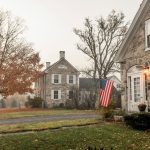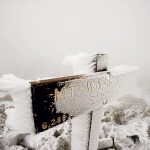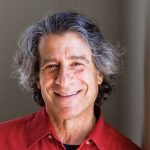Three Days at Yale
“The first time I came here, I left my car running in case I wanted to leave immediately,” the woman said, smiling at me over lunch under a big white tent. I hadn’t left my engine running, but I knew exactly what she meant. I’d thought long and hard before deciding to accept an invitation […]
“The first time I came here, I left my car running in case I wanted to leave immediately,” the woman said, smiling at me over lunch under a big white tent.
I hadn’t left my engine running, but I knew exactly what she meant. I’d thought long and hard before deciding to accept an invitation from the Yale Class of 1952 to attend their 55th reunion — the reunion that should have been my late husband’s.
“I’d like you to meet Dr. Joe Jaffer,” a friend said to me more than 40 years ago. Earlier, the same friend had told me Joe was a chemical engineer with a doctorate from Yale.
It’s hard to imagine anything that could have impressed me more. At the time I’d never even sat in a college classroom. I was in awe of Joe’s education and the institution where he’d received it, and I remained in awe throughout our life together. Joe said Yale was where he learned to think. He learned well. His knowledge encompassed many areas,from the lofty to the most practical. It was easy to leave everything to Joe; he would take care of it.
Even when he began to slip into dementia, a state that lasted ten years before he died in 2005, Joe impressed people with his intelligence and demeanor. His time at Yale had made a major contribution to the person he became — the husband, father, and employer who made everyone feel safe. I’d always wanted to attend one of his college reunions. I hoped to share a little Yale spirit with him, and capture some of what I’d missed before we knew one another. But he had his horses to take care of and a business to run, so we stayed home.
Then early in 2007 a handwritten note arrived, inviting me to be a guest of his class at their reunion. Did I jump at it? Hardly. My initial excitement was quickly replaced by anxiety. The Yale reunion was not the one-shot dinner-dance I’d always envisioned. This reunion took place over several days. Did I want to drive for three-and-a-half hours to a city I’d never visited, to spend three days in the company of 250 people I’d never met? Would I even be able to find the place? Did I have a clue what to wear?
For weeks, my answer to those questions was no. The Yale schedule of events called to me from my desk every so often: tours, lectures, workshops, dinners, dancing, the Whiffenpoofs — seductive stuff! But when I fell on an icy road in March and injured my knee, I thought, That’s it. Can’t go to Yale. Yes, my knee hurt. A lot. But it was still a feeble excuse.
It took me a couple of months to realize that if I attended the reunion, chances were excellent that I’d never regret it. And if I didn’t go, chances were excellent that I’d be profoundly disappointed in myself. Thus, late enough in May that I was definitely down to the wire, I went online and accepted the invitation. And then I memorized a map of New Haven and went shopping.
I guess I really did memorize that map. After a pleasant, uneventful drive, I arrived on schedule at the Yale garage on a Friday in June. I parked my car and wheeled my suitcase to the appointed spot where a shuttle van would pick me up and take me to the reunion. As I waited, I overheard someone directing a traveler to one of New Haven’s main thoroughfares.
“You exit over there,” he said, pointing, “and turn right on Trumbull …”
“No!” I practically shouted. This poor stranger was messing with my firmly entrenched mental image of the city. “Trumbull is a cross street.”
He turned to see who had interrupted him. If he was taken aback by my rude outburst, he didn’t show it. “No, Trumbull is this street right here.”
“It’s not,” I insisted. I may have glared at him. I hope not. “This is Temple. He should turn right on Temple. “
“Oh, you know, you’re right.”
But if I was on firm ground with directions, the rest of the weekend was full of surprises. The first was that many of Joe’s classmates remembered him. He always said the Engineering School was somewhat removed from the Liberal Arts community. But at that Friday luncheon under the tent, minutes after my arrival, I was approached a number of times by gentlemen, most of them not engineers, who told me they’d known my husband. Over the course of the reunion, I even met two classmates who had gone to Andover with him as well.
My biggest surprise (other than the dorm bed, clearly suitable only for those under 20) was the feeling of community I experienced at Yale. The widows were welcomed with such warmth. Over and over, I was thanked for coming. Since the class had absorbed the $400+ fee for my attendance, I thought I should be thanking them. And I did. But a classmate’s wife explained that they were grateful the widows were there to represent their husbands. Their presence made the class gathering more complete. Just as I’d been proud of Joe’s remarkable education, I was proud to be a Yale Widow. I thought of it that way, too, with a capital W.
And then there was the fun. For three days I smiled, laughed, shook hands, and hugged. We ate fabulous food (lobster, filet mignon, all the fresh raspberries we wanted), drank excellent wine, and danced. At the Class Dinner I coveted the aprons worn by the wait staff — navy blue with a crisp white YALE embroidered on the front. The charming gentleman seated next to me (at 87, the oldest member of the Class of ’52) arranged to have one given to me.
The daily activities offered another kind of tempting menu. What made Mozart a musical genius? A professor of music history was prepared to tell us. Did I want to learn about astrophysics? Well, maybe not, although Joe might have attended that one. A class on the biology of feathers sounded intriguing. And who could resist a lecture entitled, “The Middle Ages: A Thousand Years Without a Bath”?
In the end, I passed up lectures and tours (the Yale Art Gallery, the Gilmore Music Library, the Payne Whitney Gymnasium) and chose discussion groups on singing (we didn’t talk — we sang) and writing (we didn’t write — we talked), and a glee club workshop that culminated in the members of our workshop opening the Celebration of Yale Singing that night at Woolsey Hall. I stood on the Woolsey stage, the massive pipes of the magnificent Newberry Organ in back of us, and looked out at the audience. Joe might have sat in every chair. Our chorus sang football songs, and as I joined them, wishing poor Harvard all manner of ills, I could see his smile — Joe, who knew that my understanding of football consisted of knowing that one team wins and one team loses.
Between activities, I put my camera around my neck and walked. One of Joe’s classmates had suggested that I photograph Timothy Dwight College and the stately brick Colonial building where Joe had roomed in his undergraduate years. I started there. I followed the sidewalks of Temple and Elm, Chapel and College, and envisioned my husband walking those streets in front of me, shoulders square, youthful head held high.
If I had any doubt about whether or not I belonged at the reunion, it was dispelled on the first day. That Friday afternoon a memorial service was held at the beautiful Battell Chapel. The Class of ’52 Whiffenpoofs sang, and names were read aloud of the more than 80 classmates who had died since the 50th reunion. Joe’s name, of course, was among them. Afterward, walking back to the dorm, I stopped cold when I came face-to-face with a large poster board on College Street. It was covered with red and white flyers, all identical.
A year-and-a-half earlier, when I received the middle-of-the-night call that Joe was dying, I arrived at the nursing home with a music CD. I turned off the country gospel tunes well-meaning nurses had been playing in his room and replaced them with Shostakovich’s Fifth. The symphony was a great favorite of Joe’s, and it had special meaning for us because it was the first piece of modern classical music he’d introduced me to when we were dating. Shostakovich’s Fifth was the last music he heard on this earth.
So there I was on College Street in New Haven, staring at a huge display of posters in red and white, all announcing a performance of Shostakovich’s Fifth Symphony. It had taken place two weeks earlier, at the Yale Commencement Concert at Battell Chapel. It wasn’t the first time tears filled my eyes during my weekend at Yale, nor was it the last.
That weekend was everything I could have imagined, and nothing I could have imagined. It was as if my vision of the experience had been on a little black and white TV, and the reality was in Technicolor, beamed onto a movie screen. My first sight of Yale was the gothic stone of Branford College, gorgeous buildings on their own but that day festooned with royal blue and white banners welcoming various classes to their reunions. Welcoming me. When I left three days later, the last thing I saw was the broad smile of the undergraduate who directed our group to the shuttle van that would take us to our cars. I smiled back, wondering if she saw in us a glimpse of her future. Then I said goodbye to Yale, taking with me a part of my husband’s past.





I didn’t know my classmate, Joe Jaffer, and I didn’t actually meet Susan Jaffer at the 55th reunion of the Class of ’52. I was the moderator of the discussion group on singing she mentions, so we did meet after a fashion.
I am grateful to her for writing her memoir of the week-end. There were widows of friends there whom I did meet and I was glad that they came to join with the class.
My wife died months after our 30th, and that loss makes me especially appreciative of the wonderful women who have made our lives after Yale rich and full.
I’ve read Susie’s post with tears and a warm heart. I knew Joe Jaffer and I know how genuinely happy he would/will be by what his Widow Susie wrote. I’ve been touched by her courage to attend the Reunion alone and so happy to hear about the warmth that was there for her. Thank you for your rich memoir, Susie.
Beautifully written memoir. Susan’s experience touches me because her love for her husband is so evident in every word about him. Watching such a brilliant mind falter slowly, painfully in front of your eyes is a torture especially when it is your beloved spouse. I enjoyed Susan’s spin on her adventure, captured with deep color, warmth,and humor. It is clear that Susan’s heart was cheered and soothed by those who brought Joe back to her for a moment in time.
Oh, Susie, you know I’m an avid fan of everything you write and I loved this, too. I know my father would have been (IS) proud to have been represented by you and your absorbing account of your experiences there. I don’t know how I missed this when it was first published but I’m so glad it was here for me to read for the first time today.
I’ll continue this praisefest in private but thank you for this glimpse of my father’s beloved Yale.